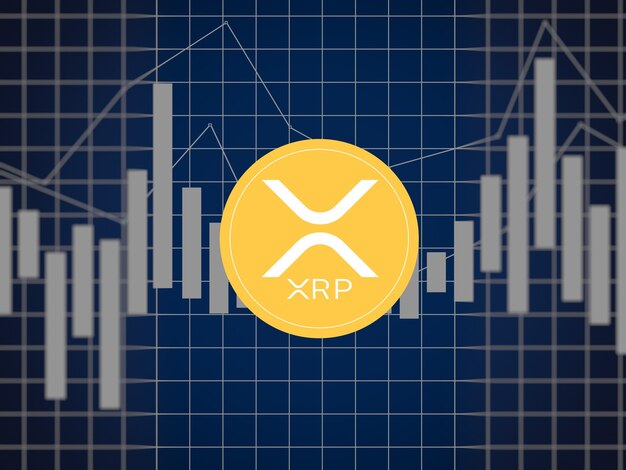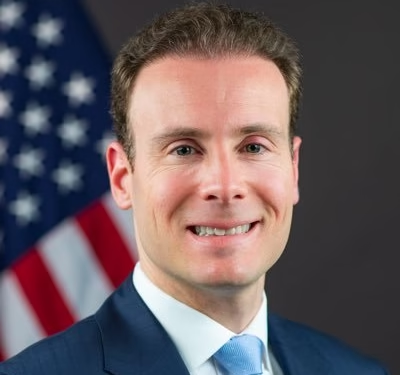U.S. President Donald Trump is reportedly preparing to nominate Michael Selig as the next CFTC chair, following the withdrawal of Brian Quintenz’s candidacy earlier this month amid resistance from industry figures, including the Winklevoss twins.
If confirmed, Selig’s appointment as CFTC chair could mark a significant realignment in U.S. financial oversight, fostering stronger cooperation between the Commodity Futures Trading Commission (CFTC) and the Securities and Exchange Commission (SEC) in shaping digital asset policy.
Michael Selig’s regulatory background and crypto credentials
Michael Selig currently serves as chief counsel to the SEC’s Crypto Task Force and senior advisor to SEC Chair Paul Atkins. A veteran in digital asset policy and financial compliance, Selig has helped draft several interpretive guidelines on digital commodities and tokenized securities under the SEC’s existing framework.
Known for his pragmatic yet forward-leaning views, Selig has been described by analysts as a “balanced pro-innovation regulator.” His potential nomination as CFTC chair underscores the Trump administration’s growing recognition of crypto’s role in global financial markets.
Selig’s experience bridging securities and commodities law gives him a unique perspective for this role, Caroline Pham, Commissioner, Commodity Futures Trading Commission, during a regulatory panel in Washington.
“If confirmed, his leadership could bring long-overdue clarity between the SEC and CFTC jurisdictions,” — Michael Sonnenshein, CEO, Grayscale Investments.
According to the U.S. Securities and Exchange Commission website, Selig has overseen several digital asset compliance initiatives, including inter-agency reviews of decentralized finance (DeFi) protocols and market surveillance improvements for stablecoin trading pairs.
A reshaped mandate for the CFTC
Traditionally, the CFTC has been tasked with regulating commodity derivatives, futures, and swaps. However, under Trump’s administration, the agency’s scope has expanded to include certain digital assets considered “commodities” under the Commodity Exchange Act.
The White House’s Working Group on Digital Assets recently recommended that the CFTC chair be given greater authority over spot cryptocurrency markets particularly those not classified as securities.
This delineation aims to end years of regulatory overlap between the SEC and CFTC, allowing each to supervise specific market segments. The CFTC chair would oversee digital commodities such as Bitcoin and Ether, while the SEC continues to regulate tokenized securities and initial coin offerings (ICOs).
We need a coherent federal framework that reduces ambiguity while protecting market integrity, — J. Christopher Giancarlo, former CFTC chairman and author of CryptoDad: The Fight for the Future of Money.
Analysts say Selig’s appointment as CFTC chair could accelerate policy harmonization, helping to stabilize U.S. crypto markets amid ongoing global competition for digital asset leadership.
Leadership vacuum and institutional uncertainty
The CFTC has been operating with minimal leadership since Quintenz’s withdrawal, with only one active commissioner overseeing its vast regulatory scope. This has raised concerns over its capacity to address emerging market risks, from derivatives volatility to algorithmic trading and tokenized assets.
If confirmed as CFTC chair, Selig would be tasked with restoring confidence within the agency and advancing pending reforms from the White House Digital Asset Policy Framework, including enhanced cross-agency communication and clearer licensing for exchanges.
“Having a leader like Selig, who understands both the technological and legal dimensions of this space, could be a turning point,” said Kara Stein, former SEC commissioner and senior fellow at the Brookings Institution.
Still, Selig’s confirmation process is expected to be politically charged. Lawmakers remain divided over how much autonomy the CFTC should wield compared to the SEC, especially amid growing calls for unified crypto regulation.
Toward coordinated crypto oversight
Should Selig assume office as CFTC chair, his first mandate will likely involve formalizing coordination channels between the two agencies. In September, both regulators issued a joint statement acknowledging the need for synchronized supervision of digital asset markets.
The move could lead to new joint task forces on stablecoins, cross-border DeFi, and crypto derivatives, providing long-sought transparency for investors and institutions alike.
Industry observers note that this alignment is essential to prevent jurisdictional conflicts that have hindered innovation in the U.S. “Fragmented oversight has slowed progress for too long,” said Kristin Smith, CEO of the Blockchain Association. “A cooperative SEC–CFTC framework would give crypto firms the clarity they’ve been demanding.”
For now, the industry watches closely. The nomination of Michael Selig as CFTC chair represents not just a leadership change but a potential philosophical shift as one that could determine how the U.S. approaches digital assets in the coming decade.











